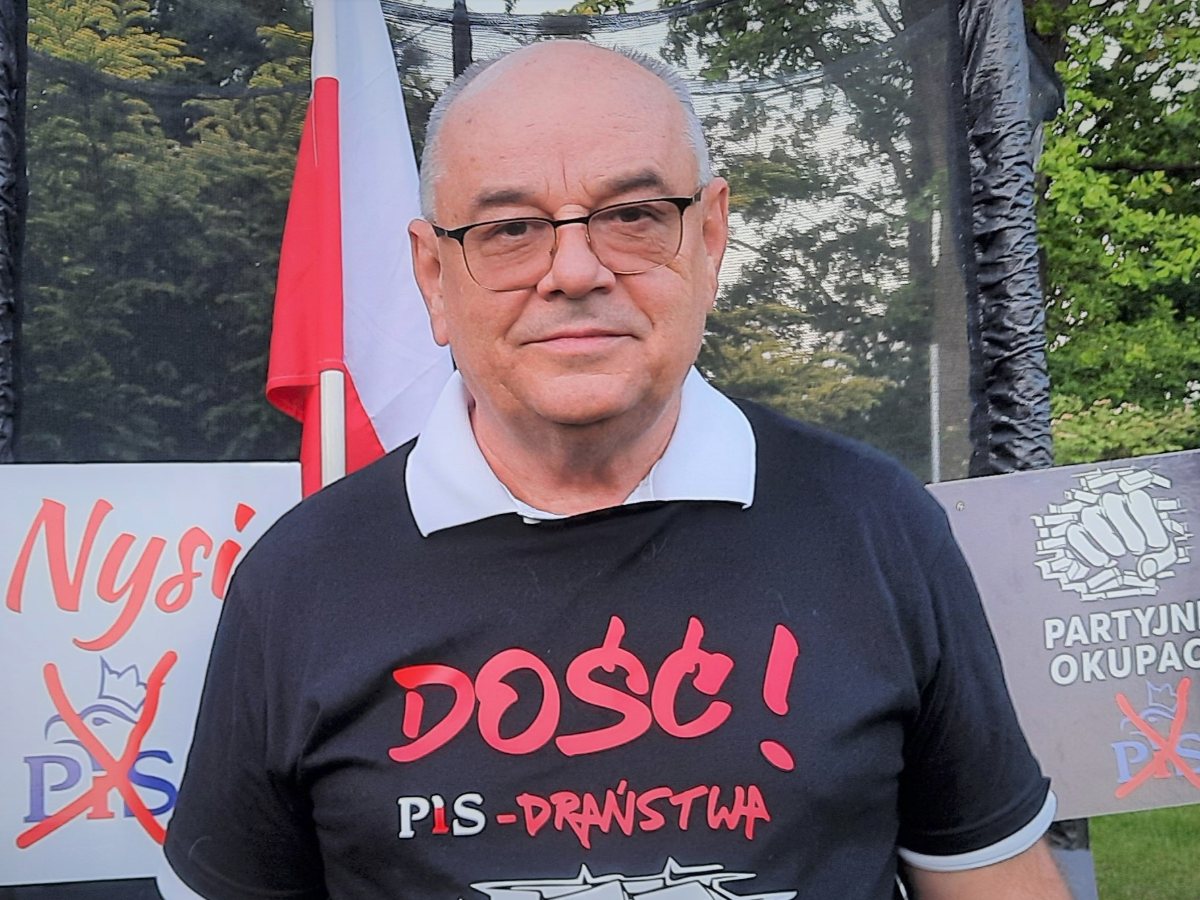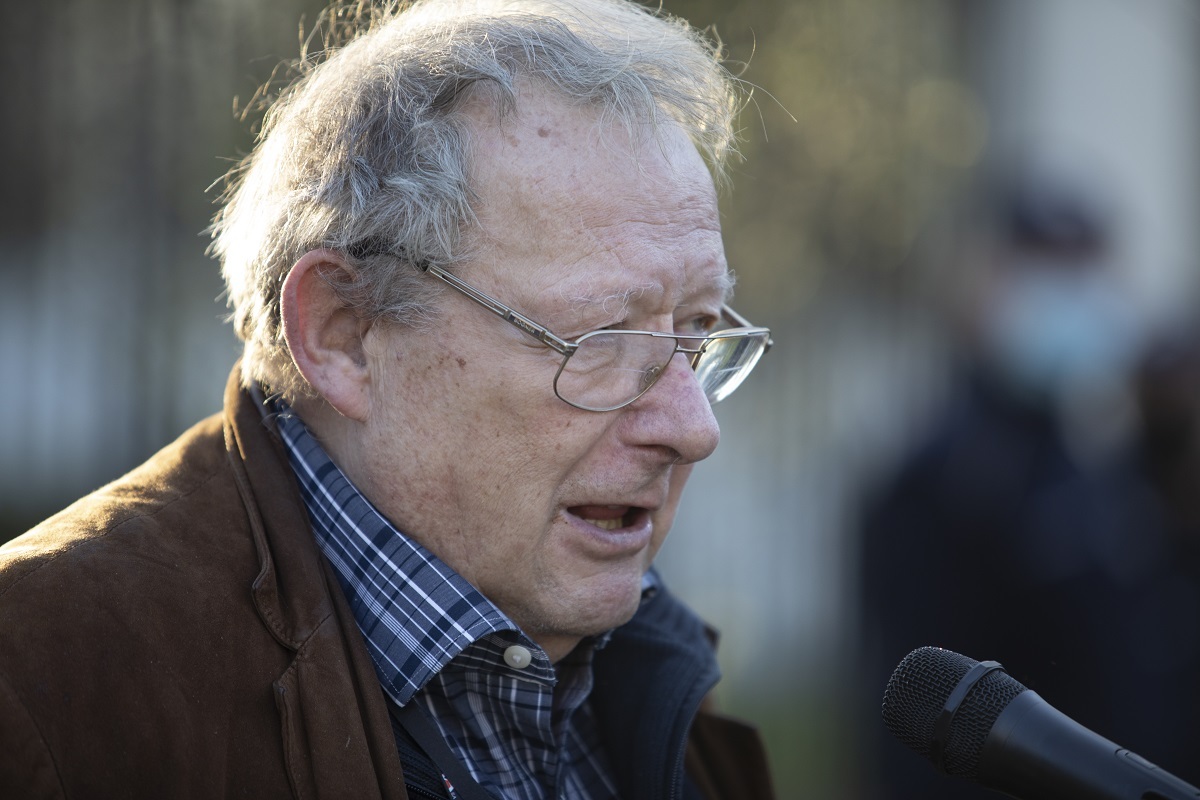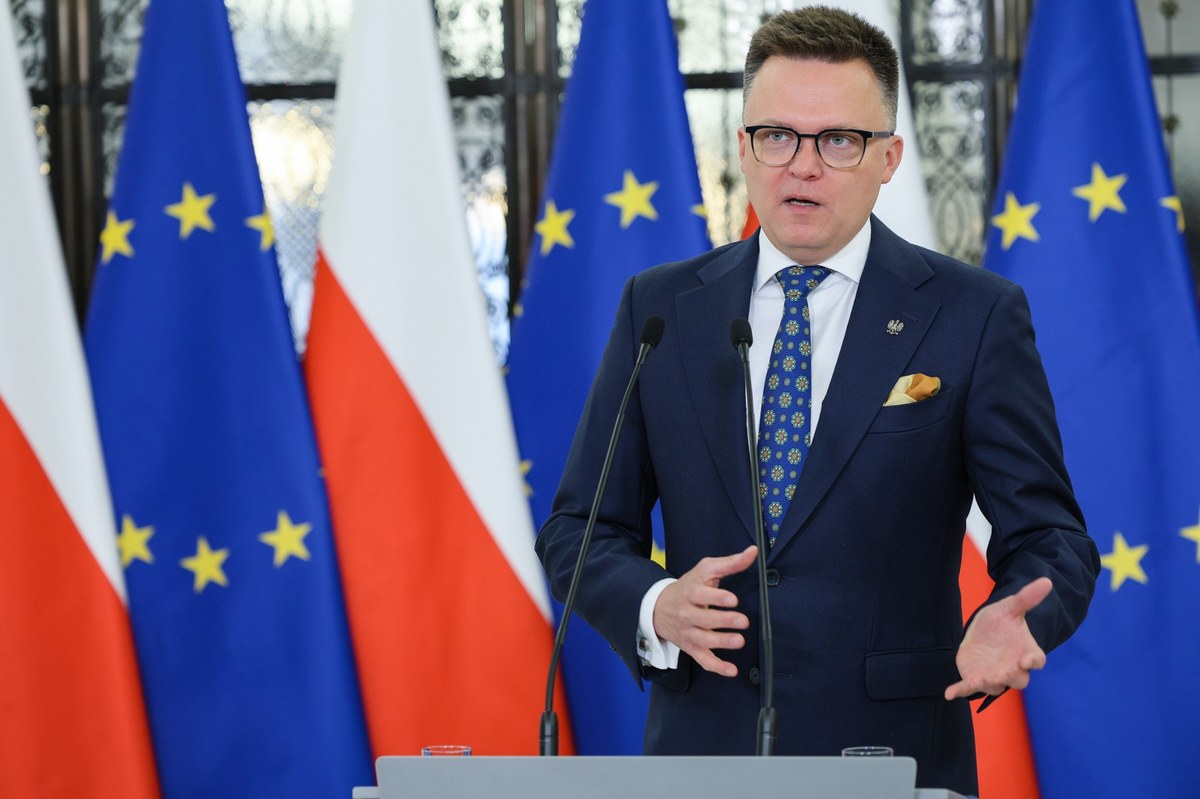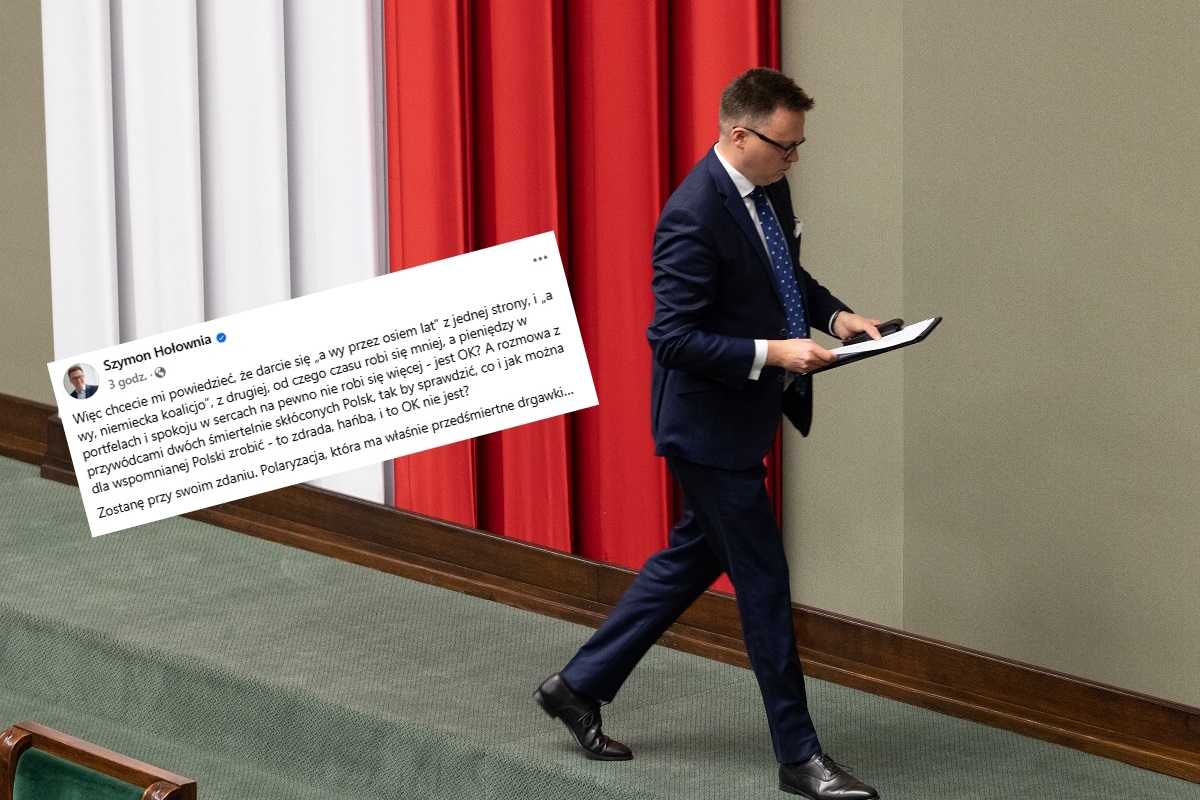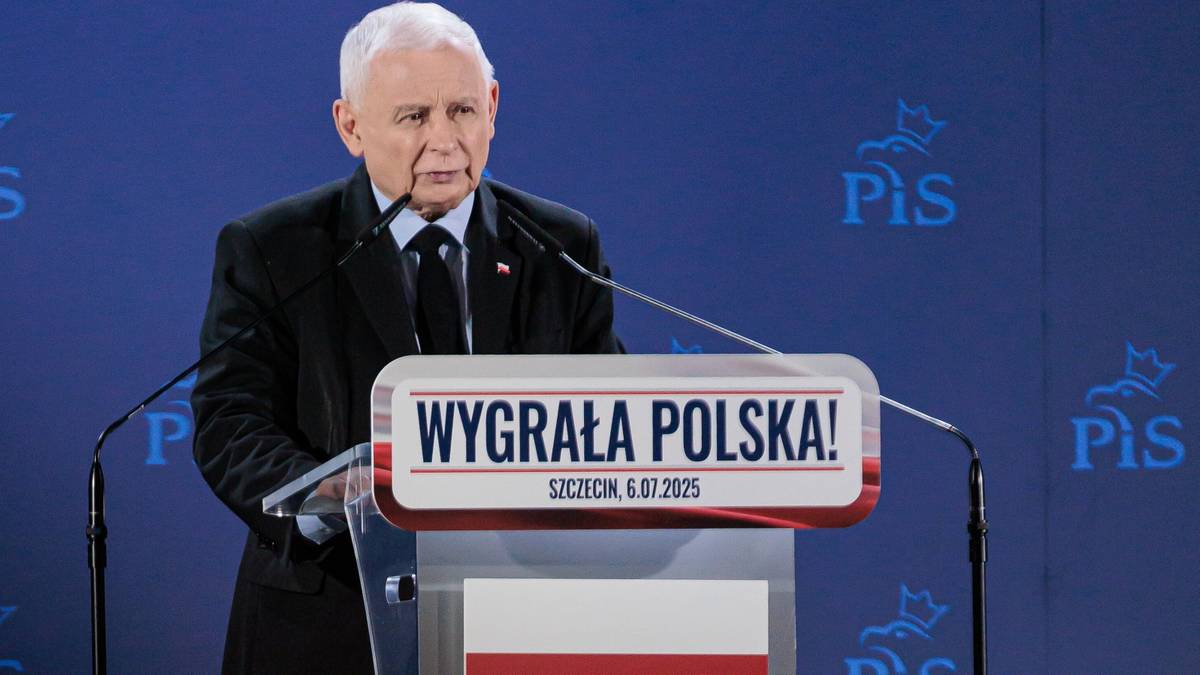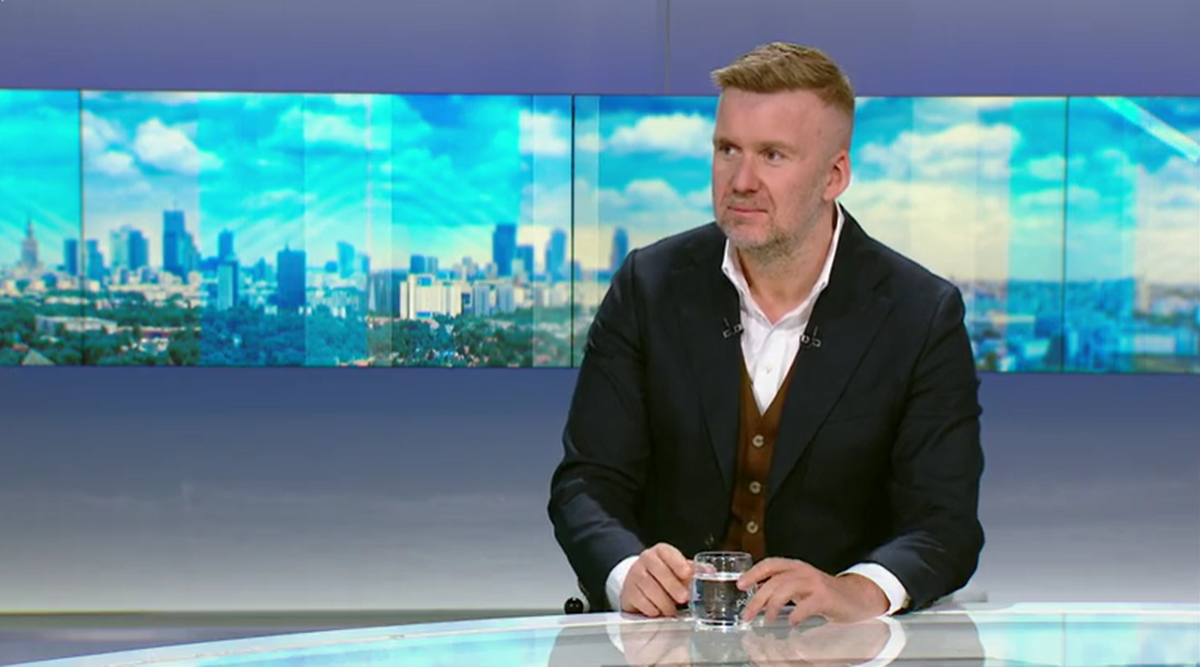It is worth to go to the European elections, so that Poland in the Union is represented by competent people. Those who can build political alliances in the most crucial issues for Poland and the full Union. It is crucial that as many people as possible who live outside the check-in place change the venue of the vote and can easy participate in these elections
These are the most proportional choices that do not favour the largest groups. Whether the voter turnout is 40-45% or 50-60% depends on the voter's determination. A week before the election, more determination can be seen on the side of the Law and the Confederation
Why is it worth going to the election?
The elections to the European Parliament are the least popular of all national elections. Sometimes I think that the reason for the low turnout in the European elections is that Euro MPs associate us mainly with very advanced salaries. A large group of people do not want to contribute with their voice to warrant the high-paid position of the Euro MP and so resign from participating in these elections. Another reason is simply a small knowing of how politics in the European Union works and what function the European Parliament plays. I will not compose about the competences of the Europarlamento, for me it is simply a place where we can present the Polish viewpoint in Europe and make compromise solutions that are acceptable to the European majority. The key competence of the Euro MP is the art of building compromises.
The popularity of populist anti-European parties is increasing in Europe. In Poland, after the triumph of the Coalition 15 X we can be glad that we have removed populists from power, but in another countries of the Union, populist parties gain supporters. In France, the National Front in polls scores over 30%. We do not know what the participation of the anti-European parties in the fresh word of office of the Europarliament will be like, what we can do with our vote for the many and competent representation of Polish MEPs in the common European Parliament.
Although we are voting in the European elections on June 9, many of us will be made by national policy. The most determined voters will go to the elections, so it will be an chance to number the “hard” electorates of all parties. This will besides be the most meaningful assessment of the coalition's 15X rule. With the expected lower election turnout of 40-50%, the slogan of Warsaw and another large cities is very actual – “Who votes counts”.
Join the list of voters
The October elections amazed us all with a advanced turnout, which in the country amounted to 74.03%. In the local elections, attendance was only 52%, and this was a return to the turnout standards from the elections of erstwhile years. There is 1 origin that is frequently overlooked in discussions about why people do not go to elections – can we easy vote? For most of us who live where we are registered, the vote is comparatively simple – just go to the nearest polling place. For those who live in rented apartments, the situation is no longer so obvious. According to Eurostat data from 2022, 12.8% of Poles lived in rented apartments, with more than 4 million people. Very frequently these people are not registered there. They can, of course, permanently sign up to the voter registry at the place of residence, but on a national scale there are only 414,000 people. So in Poland we have a group of about 1.5-3 million people who, in order to vote in their nearest polling place, must add to the list of voters for the upcoming elections. Fortunately, since August 2023, thanks to the Central registry of Voters, the process of changing the voting venue is very simplified. You can change the voting place without leaving home on the site change the voting place.
You can besides go to any municipality/city office and choose a place where we want to vote on June 9. For those who will be travelling that day and do not know precisely where they will be on electoral Sunday, it is possible to get from any municipality office a certificate of voting rights. We can then vote on any election commission in Poland and abroad.
In the elections to the Sejm last year, over 1.4 million people benefited from this opportunity. There was no anticipation in the local elections. In the European elections, we again have the full freedom to choose where to vote. To a large extent, attendance in the upcoming elections will depend on whether the voters who live outside of their residence benefit.
The deadline for these changes is Thursday 6 June.
How to vote?
The European elections are the most proportional of all national elections. All electoral committees that exceed the voting threshold of 5% of the votes per country will get that percent of the seats as a percent of the votes they received. The principles of electoral law are described in my erstwhile article European elections, simplified rules of play.
The most crucial thing to remember is that votes for tickets are converted at national level, that is, Poland is in fact 1 large constituency. The applicable conclusion of the electoral rules is this – it is crucial to vote at the nearest polling place for the candidate of the group, who best suits our views.
Unfortunately, much confusion within the meaning of electoral rules is introduced by electoral districts, which service only to allocate tickets inside the electoral list. Residents of smaller constituency specified as the Kuyavian-Pomeranian Voivodeship may be amazed erstwhile they see electoral predictions that only 2 seats will be allocated in their constituency, 1 for PiS and KO. The votes given each place have the same effect on the result.
This is best illustrated by the example of Spring from the 2019 European elections, which received just over 6% of support. In those elections, each ticket had a "price" of 230 1000 votes. Spring won 827 1000 votes on a national scale, so she could "buy" 3 tickets. In no of the constituency received 230 000 votes, which means all the obtained mandates were obtained only through combined votes from respective constituencies. Votes of voters of the Kujawsko-Pomeranian Voivodeship were just as crucial for Spring as votes of voters from Warsaw.
I frequently hear the critical vote of voters – I do not like the candidate from the first place of the electoral list and I do not want my vote to aid him become a Euro MP. There is 1 answer to that – we should vote for a candidate from another place on the list that we are convinced of. It is not predicted that the candidate from the "one" will get a ticket, no place on the list counts, the number of votes won is counted.
Election duels
Every election is filled with large excitement with election duels, where it is clear then who won and who lost. In these elections we have 2 natural pairs of groups. KO and PiS are fighting for the best score in the country. The Left and Confederacy, which have akin polling ratings, will fight for which of these groups will better mobilize their electorates and gain more votes.
The KO and the PiS will be awarded tickets in all 13 constituency. The interior rivalry between the candidates on the list will translate into a better nationwide score. The PiS strategy, where in many districts the candidate from the "one" is imposed by the organization office and the candidate from the "two" has the support of local structures may be effective in mobilising voters. For the parties, it will be more crucial to have a national consequence than whether a candidate for ‘local structures’ or ‘centrals’ wins in a given district.
The Left and Confederate will have 1 mandate in the 3-5 largest constituency. These 5 districts are Malopolsko-Shorodokrzyski, Silesian, Warsaw with adjacent districts, Wielkopolska, Lower Silesian-Opolski. The biggest challenge for these parties will be to mobilise their voters in the remaining districts. The organization leader has a large function to play here. This is understood, for example, by Robert Biedron, who is present at the election rally of the Left in the Kuyavian-Pomeranian district, despite the fact that the candidates of the Left from this state have no chance of a ticket.
The situation of the 3rd Way is besides interesting. The electoral letters in all districts were arranged so that in the districts with the advantage of the voters of Poland 2050, the list was opened by the candidate of this group, and in districts with the strong support of the PSL, on the “one” we will find a typical of the people. The 3rd road will take 1 mandada in 4-7 districts. It will depend on the mobilisation of voters whether representatives of Poland 2050 or PSL will go from the list of 3rd Road to Brussels. In the case of 3rd Way voters, the best strategy is to vote for "one" or "two" on the list, i.e. for the most recognized PSL candidate, or Poland 2050.
Who wins the election?
Who will win the European Parliament elections? I propose a different expression than counting who gets the highest number of votes. We have pro-European groups in Poland, which present form the 15X Coalition and the anti-European – PiS and Confederation. This pro- and anti-Europeanism can be defined differently, but whatever we say about the European Union, we have 2 blocks in this election. Fortunately, the last national elections were held in the same configuration of the electoral coalitions in which the parties run for the EP (i.e. the joint list of Confederations with part of the Unpartisan Local Governments in the local elections). If we number the votes from the fresh national elections to the Sejm and the provincial Sejm for the mandates for Europarlamento in 2 blocks, we will get the same consequence – 29 mandates for the 15X Coalition and 24 mandates for the PiS and the Confederation. 54.7% for pro-European parties. If the 15X Coalition gets a full of 30 or more tickets, it can talk about winning the pro-European elections, 29 tickets is simply a kind of draw – maintaining the position quo. The score below 29 mandates for parties forming a government coalition will mean the triumph of anti-European parties. As votes and mandates divided between the electoral lists of individual groups, this approach is irrelevant, the consequence of 2 blocks counts.
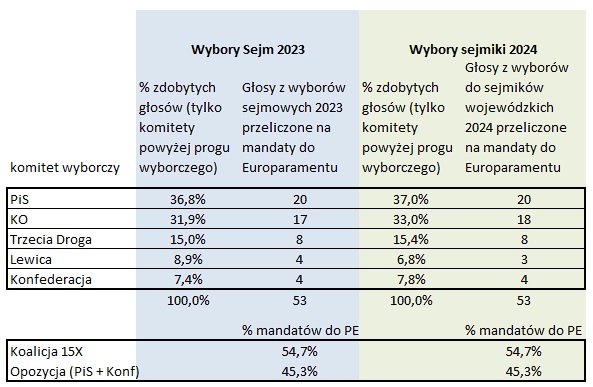
Table 1. Conversion of national election results into European Parliament mandates
Summary
We have the most proportional choices ahead of us. Anyone may vote at the place of residence for the first election group and all votes shall be equally converted into seats. The election consequence will be decided by the electorate determination. The main decision-making component will most likely be the electoral emotions associated with national policy. However, it is crucial to remember that the result of the pro- and anti-European parties in the 27 EU countries is very unknown. In the troubled times in which we live, it is worth choosing people who will be able to build political alliances for a better working community of European countries in a group of 53 Euro-Parliamentarians from Poland.
Let us remember the anticipation of changing the voting place in these elections. We can do this by June 6 on the website gov.pl. This time it is not an component of electoral tourism, but simply a facilitation for those who, on the day of the vote, will be out of residence. It's not marginal due to the fact that there are millions of people like that.
The consequence of the election will be determined by the determination of hard electorates. A week before the elections, they seem to be more effective in mobilising their PiS and Confederate voters. The PiS presents itself to its voters as a besieged fortress and calls them to defend themselves. The Confederacy conducts a reasonably active run nationwide, presenting itself as a truly anti-EU group. Among the groups of the Coalition 15X there is no specified determination. May the last week of the run bring greater mobilisation on the pro-European side.

